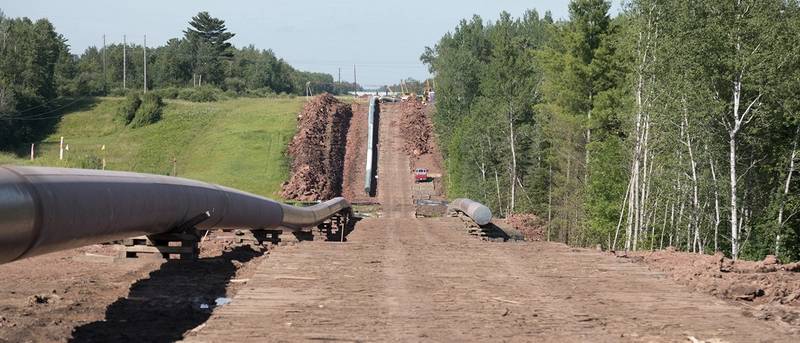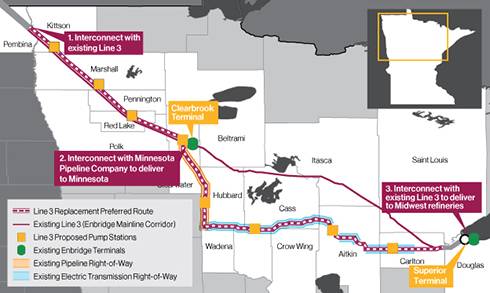Minnesota Regulators Question Enbridge Pipeline Expansion
Commissioners on a Minnesota regulatory board questioned crude oil demand for Enbridge Inc's Line 3 pipeline on whether work can proceed on a proposed expansion of the line.
Enbridge wants to replace the aging 1,031 mile pipeline that runs from Alberta to Wisconsin, but approval is needed from the Minnesota Public Utilities Commission.
Bottlenecks in Alberta have steepened a price discount for its heavy crude this year.
Line 3, placed into service in 1968, operates at half its capacity due to integrity concerns. Its replacement would allow it to return to approved capacity of 760,000 barrels per day.
Commissioners spent part of the morning discussing whether the project is necessary.
Commissioner Dan Lipschultz said he felt "frustration" having to rely on forecasts provided by Enbridge based on rising oil production, rather than on refiners' demand.
Enbridge lawyer, Eric Swanson, noted that global demand is growing, and that Enbridge apportions demand on Line 3 - transporting less oil than shippers request.
“We think it shows a compelling case that Line 3 plus the expansion will be fully utilized," he said.
Lipschultz asked Swanson whether it would be reasonable to approve Line 3 for lesser capacity of 500,000 bpd, to which Swanson replied 'no.'
Commissioner Matt Schuerger said data for state refineries suggest little idle capacity, although the state's largest refiner, Flint Hills Resources, has said Line 3 is badly needed.
“They’re getting oil clearly,” Schuerger said.
"The oil is getting to market somehow," replied Swanson, representing Enbridge. "The question is what is the most reliable, efficient means of getting it there."
Environmental groups and some indigenous communities oppose the project over concerns about spills and damage to tribal wild rice harvesting areas. Business and labor groups say the project, to cost $2.5 billion in Minnesota, would create jobs and tax revenue.
Reporting by Rod Nickel




